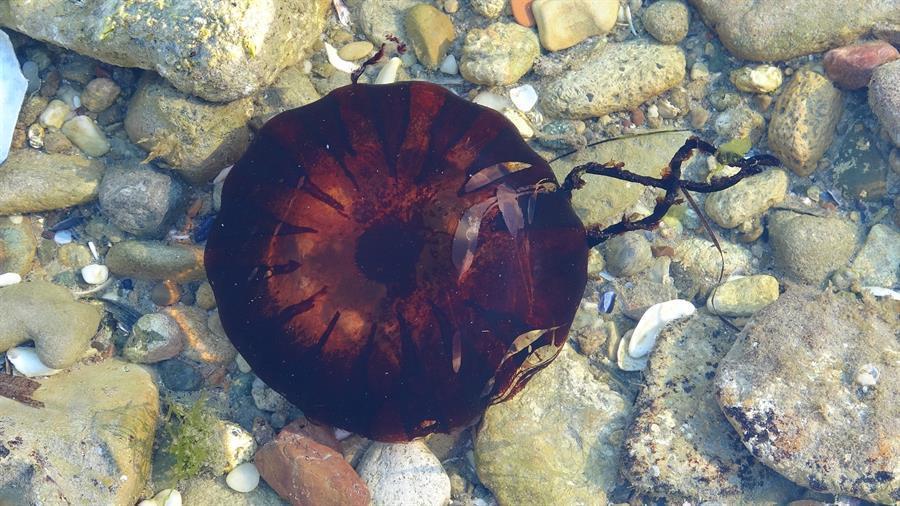
A poisonous species of jellyfish, commonly called compass jellyfish, has been infesting the Çanakkale Strait and spearing into the Marmara Sea, an expert has said, warning people to keep away from them.
The species, known by the scientific name Chrysaora hysoscella, have been migrating from its natural habitats in the Mediterranean Sea and the Aegean Sea up to the north toward the Marmara Sea.
According to scientists, pollution and the rise of 2 degrees Celsius in seawater temperatures in the Marmara Sea are the reasons behind the jellyfish migration.
The compass jellyfish are red, brown and yellow in color, and their tentacles could be 1.5 meters in length.
People should never touch the compass jellyfish, whether they are dead or alive, said Professor Muhammet Türkoğlu from the Marine Sciences and Technologies Department’s Aquaculture Faculty at Çanakkale Onsekiz Mart University.
“Earlier, we did not have this species in the Marmara Sea or the Black Sea. However, due to climate change, the temperature in the Marmara Sea has risen. Moreover, the excessive pollution in the Marmara Sea means food for this species,” Türkoğlu said, adding all those factors combined provided a breeding ground for them.
He warned people to stay away and not to touch the compass jellyfish.
“Their tentacles are full of sticky capsules, which may cause rash and itching. The affected area needs to be rinsed with vinegar; never pour fresh water on the skin,” Türkoğlu advised.
Other experts suggest that centipedes, which feed on jellyfish, may help with efforts to get rid of this particular poisonous species.
Dolphin deaths
Meanwhile, in the past three months, 33 dead dolphins washed ashore on the beaches along the Black Sea.
“There might be different reasons for their deaths. They also die of natural causes, illnesses, or if they get hit by a ship. However, particularly in [the province of] Sinop, fishing nets appear to be the main reason,” said Uğur Özsandıkçı from the Sinop Üniversity.
Fishing nets prevent dolphins from climbing to the surface to replenish their air supply, Özsandıkçı explained.
Özsandıkçı also noted that the noise pollution probably heightened due to the ongoing war between Ukraine and Russia, and dolphins could escape to the south.